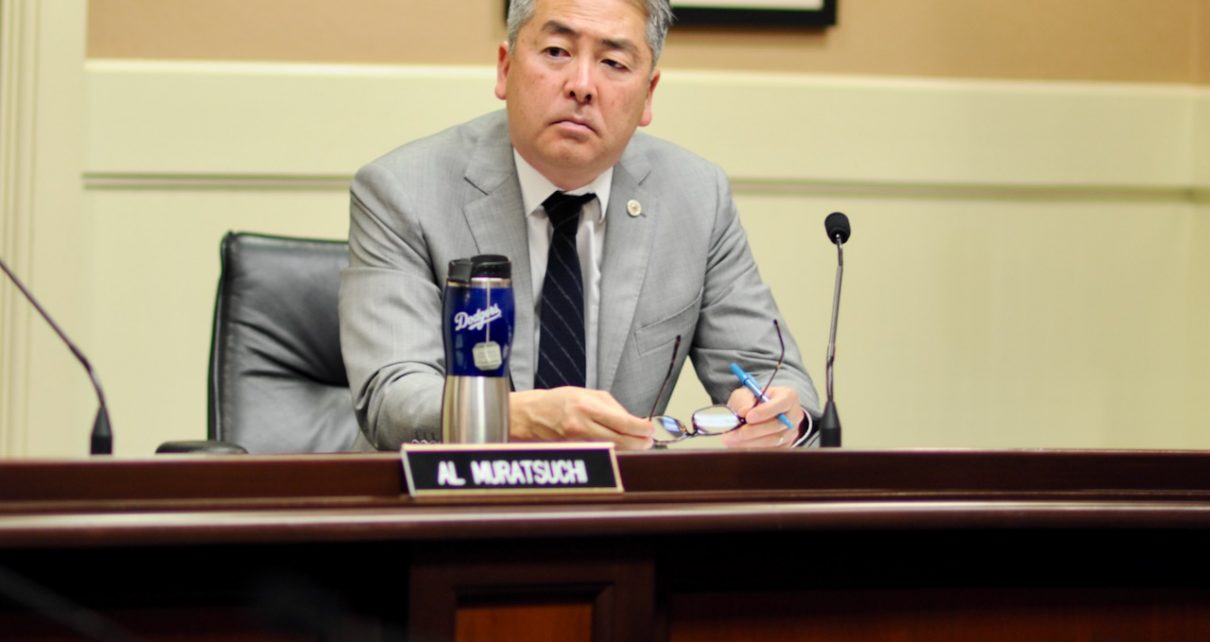
Assemblyman Al Muratsuchi (Photo: Kevin Sanders for California Globe)
California Set to Formally Apologize For Japanese-American Internment During WWII
The Thursday vote already has widespread support
By Evan Symon, February 17, 2020 3:47 pm
On Thursday, Assemblymembers in Sacramento will vote on whether or not the state will give a formal apology for uprooting and sending Japanese-Americans to internment camps in the 1940’s.
The resolution is expected to cover the two internment camps set up in California following President Franklin Roosevelt’s signing of Executive Order 9066 in 1942, as well as the history of anti-Japanese prejudice in the decades before, such as through the 1913 Alien Land Law, which stopped many Japanese immigrants from buying farmland.
The resolution will also not give compensation to victims, despite being closely modeled on the Civil Liberties Act of 1988, the federal apology signed by President Ronald Reagan that also gave $20,000 to every survivor of the camps.
“I want the California Legislature to officially acknowledge and apologize while these camp survivors are still alive,” said resolution author Assemblyman Al Muratsuchi (D-Torrance). “We like to talk a lot about how we lead the nation by example. Unfortunately, in this case, California led the racist anti-Japanese American movement.”

According to Assemblyman Muratsuchi and his co-sponsor Assemblywoman Marie Waldron (R-Escondido), the resolution was inspired by the need to learn of the mistakes made in California’s past, such as the state hosting the Manzanar and Tule Lake Internment Camps in the 1940’s, as well as more recent events such as placing migrant children in detention centers along the border.
“My parents and my grandparents lost so much,” explained John Hasegawa, whose family was interned in camps in California and Arkansas during WWII. “I only heard stories, but everybody thought they were spies despite one of my grandfathers being a floor leader at a grenade factory and my grandmother winning a ‘patriot of the year’ award. From what my parents remember it was like a summer camp until their parents made them realize just exactly what happened. My grandmother apparently cried herself to sleep most nights because of how bad it was.”
“My dad became a lifelong Republican because of that and had even sent letters to congress to try and stop the FDR memorial from being built.”
“This apology means something. I remember him not wanting to cash the check when we got it about 30 years ago, but my dad was happy that the president said that. I think this is just a continuation of that. California had a big role in that, and they’re acknowledging it. It kind of means a lot.”
The Thursday vote will also mark the 78th anniversary of the signing of Executive Order 9066. The resolution, which has widely received bipartisan support, is expected to easily pass.
- Bill to Require Law Enforcement Disclosure if AI Was Used To Help Write Reports - August 7, 2025
- Gov. Newsom Files FOIA Request To ‘Expose True Cost’ Of L.A. Federal Troop Deployment for Anti-ICE Riots - August 6, 2025
- California Redistricting: How Newsom’s Plan Will Demolish Hard Fought GOP Gains - August 6, 2025




